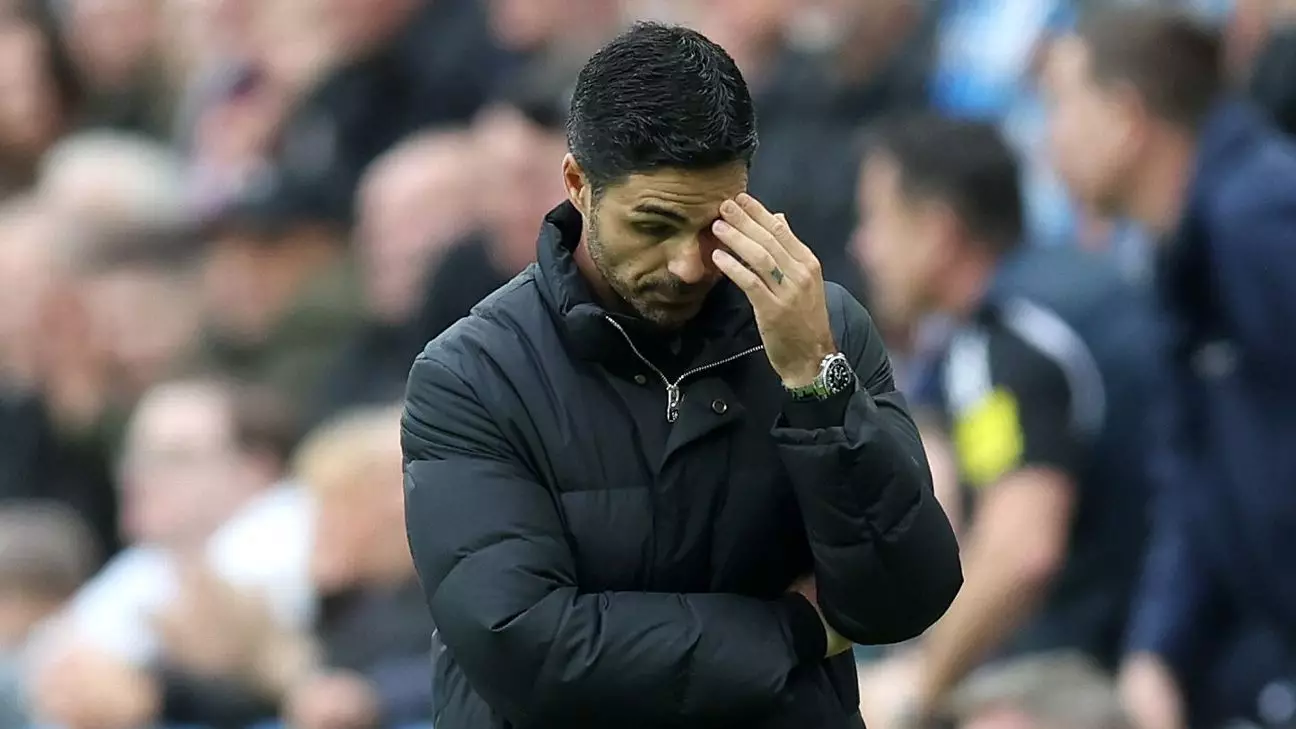Last weekend provided a fascinating chapter in the saga of European soccer, with Liverpool climbing back to the summit of the Premier League amid unexpected turmoil for some of their rivals. The defeat of Arsenal against Newcastle, coupled with Manchester City’s stumble against Bournemouth, illustrated the unpredictable nature of this season. Liverpool, under the guidance of their new manager Arne Slot, showcased resilience as they decimated Brighton. However, the victory came with caveats, as the first half revealed cracks in their performance that could be exploited by more incisive opponents.
Despite Arsenal’s statistical dominance in terms of shots and expected goals during their defeat, manager Mikel Arteta was refreshingly candid in his analysis. Refusing to lean on injuries as an excuse, he attributed the loss to a failure to impose their desired game plan. This highlights a profound tactical struggle that teams like Arsenal face when they encounter clubs willing to play a more physically demanding game.
Arteta’s admission points to a deeper issue within Arsenal—that of squad depth and the ability to maintain performance levels throughout the grueling campaign. Key players have been forced to bear the brunt of the workload, with much reliance placed on a select few after injuries sidelined several squad members. This not only shapes on-field dynamics but puts added pressure on Arteta, especially with the potential departure of sporting director Edu Gaspar looming over the club.
As Arsenal’s competitors sharpen their focus and refine their tactics, Arteta will need to cultivate a more adaptable side that can respond to various styles of play. While their performances have been commendable in matches against conventional teams, failures against more aggressive sides like Newcastle reveal a limitation that could hinder their title ambitions.
In contrast, the recent successes of Atalanta under Gian Piero Gasperini draw attention to the transformative power of effective coaching. His ability to foster a collective mentality within the squad has been critical to their remarkable consistency in Serie A. Notably, Atalanta’s player development strategies have yielded dividends as newcomers seamlessly integrate into the squad, echoing Gasperini’s philosophy.
Although Napoli manager Antonio Conte acknowledged Atalanta’s superiority, it underscores a broader discussion about long-term planning versus short-term results. Clubs who invest in cultivating a specific brand and philosophy often outperform those that rely mainly on star power, as seen with Atalanta’s rise through effective management and coherent squad-building strategies.
Meanwhile, Bayern Munich continues to solidify its supremacy in the Bundesliga, boasting three consecutive victories while cementing its position at the top. The integration of Harry Kane into the squad has proven pivotal, yet it is the resurgence of their defensive attributes that is garnering attention. Players like Min Jae Kim and Joshua Kimmich, often criticized in the past, have now emerged as indispensable to Bayern’s defensive framework.
The dynamic within the squad reveals a shift toward greater cooperation among players, which will prove vital as they vie for the Champions League and domestic titles. However, questions linger about their ability to maintain this form given the strenuous demands of continually competing on multiple fronts.
Over in Italy, Inter Milan’s recent performances reflect a club grappling with its identity under new management. The inconsistency that has plagued teams like Juventus also casts a shadow over Inter. Their win over strong opponents must be tempered with an understanding of the team’s broader struggles, particularly in finishing matches decisively. Each victory seems to be a rollercoaster ride, showcasing flashes of brilliance amidst periods of puzzlement.
The fans’ patience will be tested as their new tactics come under scrutiny. The key is finding that delicate balance between attractive soccer and results on the pitch, a challenge that every major club grapples with at some stage.
Paris Saint-Germain’s recent efforts reflect deeper issues within clubs that strive for dominance. The 1-1 draw against 10-man Lens highlighted the tactical challenges surrounding their forward line. The team seemed aimless at times, relying on individual brilliance while struggling to find cohesion. Instead of relying on their expensive acquisitions to lead the charge, PSG must reassess their strategy to utilize players more effectively.
It’s crucial for them to find a reliable forward strategy, especially with the uncertainty surrounding Randal Kolo Muani’s role in the squad. This predicament is no trivial matter, as competition intensifies across Europe, necessitating a well-structured approach to maximize the talents at their disposal.
This weekend’s European soccer action has illuminated various tactical dilemmas and managerial challenges that clubs face. As the competition heats up, teams must adapt to not just their opponents but also to the distinct demands of an entire season filled with pressures and expectations. The ability to rotate effectively, cultivate squad depth, and foster a resilient mentality could very well determine which clubs thrive come season’s end. With every game, a new narrative unfolds, promising drama and unpredictability that soccer fans have come to cherish.

